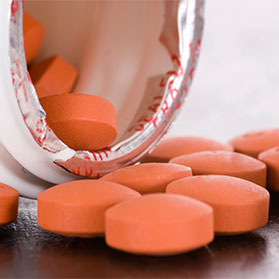3 Over-the-Counter Medication Myths Busted

With so many medications available at drugstores without a prescription, it's second nature to treat symptoms of illness without the advice of a medical professional. But, before you buy an over-the-counter drug for any ailment, make sure you know the facts.
M. Luke Bobbitt Pharm.D., a clinical pharmacist at Bethesda North Hospital, clears up common misconceptions related to over-the-counter drugs.
Myth: Brand-name medications work better than their generic equivalents.
Fact: You-get-what-you-pay-for doesn't apply to over-the-counter medications, Bobbitt says.
"Generally, I recommend the generic. It's cheaper and has the exact same amount of the active ingredient," which is what works to treat your symptoms, he says. Other listed ingredients sometimes vary, but in terms of their efficacy, there's not much difference.
"It's smarter to buy the Kroger or CVS brand," he says.
Myth: If it's available without a prescription, it's safe.
Fact: Medications are safe in the appropriate doses. "It's important to follow dosage guidelines," Bobbitt says. "More is not better. I've seen a lot of people come to the hospital because they've taken too much."
When it comes to children, especially, caregivers should heed instructions and avoid dolling out too much medicine. Smaller doses of adult medications are not appropriate, either.
"It might not seem like there's a big difference between 5 mL and 10 mL, but there definitely is when you're talking four doses," he says. "You have to be careful."
- Related: Are Online Prescriptions Safe?
Myth: Over-the-counter medications can be taken for as long as symptoms persist.
Fact: Some medications - particularly nasal sprays (such as Afrin) and eye drops, meant to relieve allergies - should not be used around the clock for more than three days, Bobbitt says.
Prolonged use of certain drugs can cause residual effects, such as "rebound congestion," whereby a stuffy nose initially clears, but worsens later. "If you're using that much (of a drug) and it's not helping, you should seek a prescription," he says.
For the most part, medications that treat headaches and cold symptoms are OK to use for about a week to 10 days.
If you're not sure what to take, how much to take or how long to take it, consult a pharmacist.